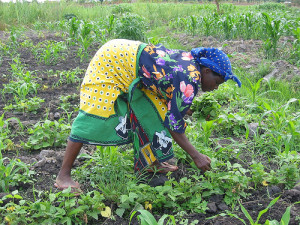A World Bank report launched last week has suggested that Africa’s farmers and agribusinesses could create a trillion-dollar food market by 2030.
However, the pre-condition for such a development would be for agri-business SMEs to expand their access to more capital, electricity, better technology and irrigated land to grow high-value nutritious foods as well if African governments can work more closely with agribusinesses to feed the region’s fast-growing urban population.
The Report titled as ‘Growing Africa: Unlocking the Potential of Agribusiness’ argues that Africa’s food systems, currently valued at US$313 billion a year from agriculture, could triple if governments and business leaders radically rethought their policies and support to agriculture, farmers, and agribusinesses, which together account for nearly 50 percent of Africa’s economic activity.
Makhtar Diop, World Bank Vice President for Africa Region believes the time has come for making African agriculture and agribusiness a catalyst for ending poverty.
“We cannot overstate the importance of agriculture to Africa’s determination to maintain and boost its high growth rates, create more jobs, significantly reduce poverty, and grow enough cheap, nutritious food to feed its families, export its surplus crops, while safeguarding the continent’s environment,” argues Diop.
Africa holds almost 50 percent of the world’s uncultivated land which is suited for growing food crops, comprising as many as 450 million hectares that are not forested, protected, or densely populated.
Africa uses less than 2 percent of its renewable water sources, compared to a world average of five percent. Its harvests routinely yield far less than their potential and, for mainstay food crops such as maize; the yield gap is as wide as 60 to 80 percent.
Post-harvest losses run 15 to 20 percent for cereals and are higher for perishable products due to poor storage and other farm infrastructure.
These are opportunities considering that due to a combination of population growth, rising incomes and urbanization and strong demand are driving global food and agricultural prices higher.
The report says African countries can tap into booming markets in rice, maize, soybeans, sugar, palm oil, biofuel and feedstock and emerge as major exporters of these commodities on world markets similar to the successes scored by Latin America and Southeast Asia.
For Sub-Saharan Africa, the report points to rice, feed grains, poultry, dairy, vegetable oils, horticulture and processed foods to supply domestic markets as the most dynamic sectors to exploit.
But the report warns that even as land will be needed for some agribusiness investments, such acquisitions can threaten people’s livelihoods and create local opposition unless land purchases or leases are conducted according to ethical and socially responsible standards, including recognizing local users’ rights, thorough consultations with local communities, and fair market-rate compensation for land acquired.
“Improving Africa’s agriculture and agribusiness sectors means higher incomes and more jobs. It also allows Africa to compete globally. Today, Brazil, Indonesia and Thailand each export more food products than all of sub-Saharan Africa combined. This must change,” says Jamal Saghir, World Bank Director for Sustainable Development in the Africa Region.











